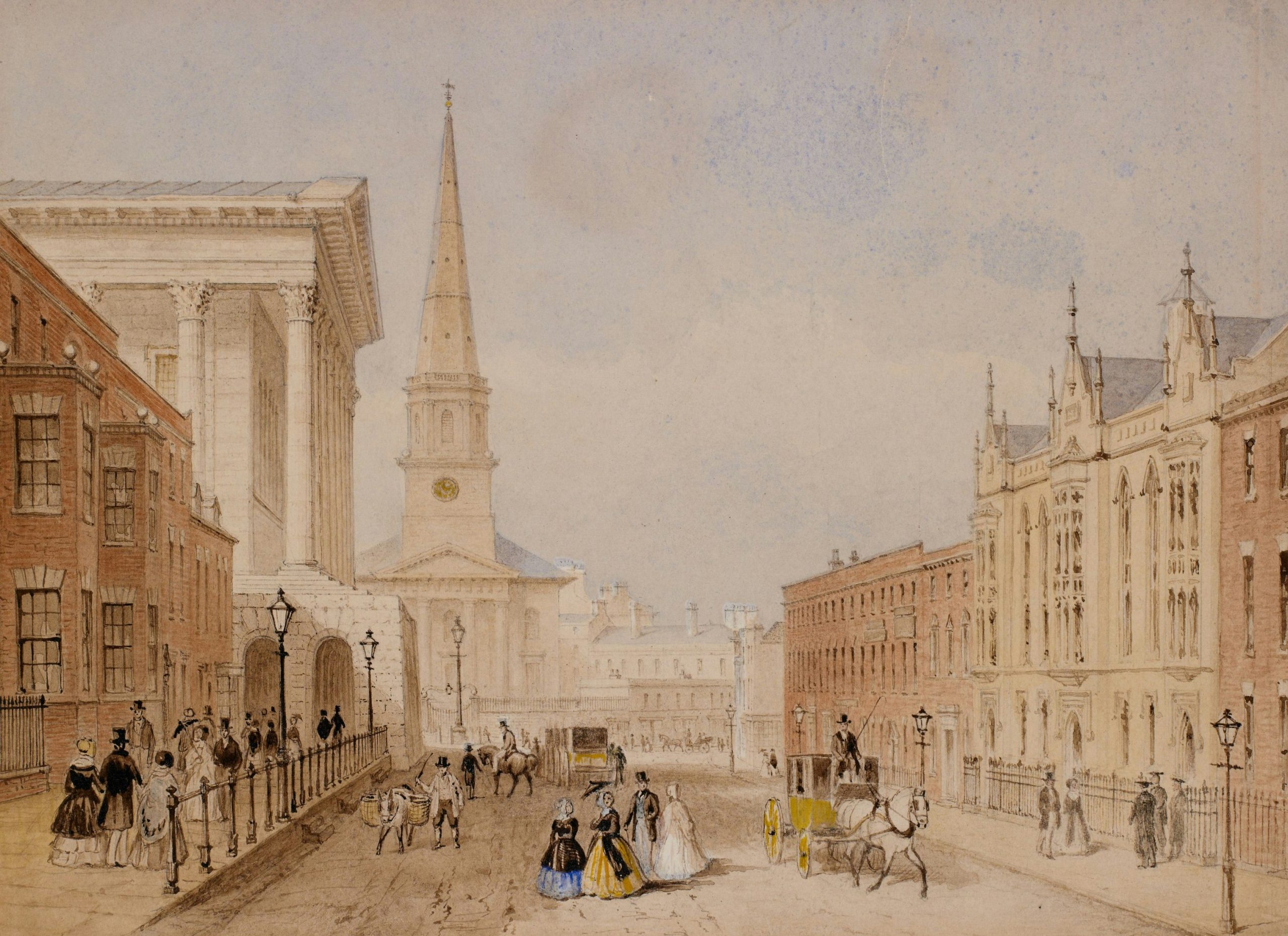| Words: | 3270 |
|---|---|
| Pages: | 4 |
Sample of History Research Paper: The Battle of Jerusalem 1917

We have more samples of history research papers on our blog. We are sure that you will like our sample about the Britain-American relationship or the history research paper about the status of women. Reading the well-structured texts produced by our experienced authors will improve your own writing skills. You can learn more about different ways of argumentation and structuring your thoughts using the samples on our website as examples. If you don’t find a suitable topic, you have an opportunity to order a paper on any topic for your personal use. You are able to use our samples as a reliable source of information or as a template for your own work. We also offer you the ability to choose an appropriate specialist to complete your assignment according to his or her experience and qualifications.
What Was the Background and Consequences of the Battle of Jerusalem 1917?
Introduction
The Battle of Jerusalem in 1917 is considered to be the important event which influenced the course of World War I. Being the strategically vital point, the Holy City was the desirable territory for the British commanders. That is why, connecting the success of the war for Allies with the capture of Jerusalem, Britain created the course of taking the city. The whole campaign, having complicated background with both the failures and triumphs, led to the negative consequences for the Turks and changed the end of the war.
Historical Events that Preceded the Battle
Although the successful results of the World War I, in particular in the battles of Arras, Messines, and Cambrai, 1917 was considered to be not so beneficial year for Britain. The army lost a lot of soldiers and thousands were wounded; the food stocks were exhausted. That is why David Lloyd George, new British Prime Minister, tried to find the solutions to the problems and the way to end the war with positive results for Britain. His main strategy was based on the attempts to attack the weaker part of the opponent – Austria-Hungary and Turkey. He associated their fall with the fall of Germany in general. But the plan was a failure as Gallipoli Campaign did not bring any results. So, he created a new plan concerning Palestine – the legendary area which was at the forefront of Bible history and Crusades. David Lloyd George believed that the invasion and conquest of Palestine would lead to the victory (Wavell, Field-Marshal Earl, and Major-General Sir Charles Callwell 46).
The Stages of the Battle
The Egyptian Expeditionary Force, headed by Sir Archibald Murray, made the way through the Sinai desert to the East. The troops of Murray followed Turks and made them retreat. During that period it is considered to be several short and successful battles. On January 9, 1917, the British forces got into Palestine. Sir Archibald Murray understood that Palestine was not rich for natural resources. That is why he decided to organize the immediate building of the railway. Besides, he did not forget about lack of water, so managed to build the pipeline from Egypt which provided the British forces with water (Wavell, Field-Marshal Earl, and Major-General Sir Charles Callwell 37). In general, the success of the campaign was connected with these roads and the rate of their building. Considering water, the necessity of this resource was of high importance for the troops. For example, attacking Gaza, British and Anzac soldiers made some successful steps, but because of the loss of water they lost their leading positions and gave the victory to the rivals. On April 17, Sir Archibald Murray continued the attacks and made the second attempt to conquer Gaza (Wavell, Field-Marshal Earl, and Major-General Sir Charles Callwell 89). Much to his chagrin, the new trying was also failed. That is why David Lloyd George, British Prime Minister, decided to choose a new commander. This person was General Sir Edmund Allenby who succeeded in the Battle of Arras (Hughes, Matthew 76).
Edmund Allenby was known as decisive, confident, and powerful commander; he was called “the Bull.” The Prime Minister gave the task for him to win Jerusalem until Christmas. On June 28 he was at the Egyptian Expeditionary Force. With all the efforts, he began to activate the forces. The first serious task was to cross into Gaza. At first, his two attacks were not so successful as he expected, that is why Allenby decided to strike inland against the town of Beersheba. This action made Turks pay attention not to the main attack but the secondary one. On October 31, the British troops headed by Allenby crossed Beersheba moved in the direction of the Turkish trenches. As a result, the commander took the city and had the chance to make the way into Jerusalem. But despite the difficulty of the situation, the Turks tried to repel the attack (Hughes, Matthew 69). The strategy of Allenby, based on two directions, towards Jaffa and Jerusalem, was underpinned by the strong desire to conquer the Holy city.
Commanders and Military Forces
The plan of the commander was not to destroy the city but to take the control. So, he decided to encircle the city and get rid of Turkish troops. At the end of November, he did the first attempt, but unsuccessfully. He did not lose the hope and made the second one on the night of December 7. It led to the general retreat of Turkish garrisons and Jerusalem was left without much support. The final win was connected with the capture of the Mount of Olives, and the Holy City was conquered by the Egyptian Expeditionary Force (Woodward, David R 98).
David Lloyd George was very happy to hear about taking Palestine. He praised General Sir Edmund Allenby saying that the capture of Jerusalem had the great historic value. It brought the highest delight both for the British and other members of the Allies. Finally, the Holy City was again controlled by Christian people, not the Turkish. The win of Jerusalem was considered as the factor leading to the finish of 1917.
Conclusion
The significance of the Jerusalem capture could not be overestimated because of its meaning for the world of religion. That is why on December 11, the commander decided to show respect and peace entering the Holy City on foot. A lot of British newspapers associated the taking of the city with the end of the Crusades. Allenby went to the Citadel where he made the pronouncement about the peaceful character of the British invasion. The city met him as a liberator and the chance to gain freedom (Bovis, Henry Eugene 56).
Considering the consequences of the Battle of Jerusalem 1917, it led to the negative results for the Turkish positions. Further attacks against the experienced and powerful Turkish troops, provided with better artillery, were ended with their full defeat. It resulted in the loss of strategically important territories and caused the failure of Central Power (Wavell, Field-Marshal Earl, and Major-General Sir Charles Callwell 106).
To sum up, Jerusalem was seen by the British commanders as the point which will lead to the successful ending of a difficult 1917. The Egyptian Expeditionary Force, formed under the commander Archibald Murray, was directed on to the capture of the Holy City. As the plan of Sir Archibald Murray failed, the leading role was filled by strong, decisive and powerful General Sir Edmund Allenby. Creating the strategy to take the city in the near future, he made all the possible attempts to do it despite the lack of resources and exhaustion of the troops. After several failed attempts, he organized the forces in such a way that on December 11 Jerusalem was taken. That day was considered to be the day of the liberation of the Holy City. In general, the battle had great importance for the British powers and Allies in general. It weakened the positions of the Turks and led to the defeat of Central Power.
Works Cited
Bovis, Henry Eugene. The Jerusalem Question, 1917-1968. Ann Arbor, Mich., Xerox University Microfilms, 1974.
Hughes, Matthew. Allenby And British Strategy In The Middle East 1917-1919. Hoboken, Taylor And Francis, 2013.
Hughes, Matthew. “General Allenby And The Palestine Campaign, 1917–1918.” Journal Of Strategic Studies, vol 19, no. 4, 1996, pp. 59-88. Informa UK Limited, doi:10.1080/01402399608437652.
Wavell, Field-Marshal Earl, and Major-General Sir Charles Callwell. The Palestine Campaigns. San Francisco, Verdun Press, 2016.
Woodward, David R. Hell In The Holy Land. Lexington, The University Press Of Kentucky, 2014.
Are Spain and Portugal the Most Evil Nations on Earth?

To say a certain nation is more evil than another is a subjective statement. All nations, all of the world’s great empires, have had their day when they’ve fallen on evil times. Other great empires, like the Romans, the British and others had their rise, usually through conquest and domination of other nations, only to fall when their own evil catches up with them.
Like the other empires, Spain and Portugal certainly went through their evil times during their periods of exploration and colonization. Initially rivals, the two nations were more-or-less partners as they carved up the New World, Africa and Asia into their own spheres of influence with the signing of The Treaty of Tordesillas (“Dividing the World,” 2007).
Spain’s monarchy got the ball rolling by financing Christopher Columbus’ trip to find a westward passage to India. Though he wasn’t successful, he did help discover two new continents which were ripe for plucking by the Spanish crown. This discovery led to centuries of exploitation of native people in the Americas, Africa and Asia (“Dividing the World,” 2007).
While not as concerned with colonization as the Spanish, the Portuguese also sought to benefit from trade and exploration (The Age of Exploration, 2011). The two nations seemed on a collision course until they entered into The Treaty of Tordesillas (“Dividing the World,” 2007). Both countries profited from the conquest of native peoples, the theft of their wealth and the use of conquered people in the Americas and Africa as slave labor (The Age of Exploration, 2011).
Eventually, both nations, but primarily Spain, over-extended themselves in their goals of conquest. Other nations, particularly France and England, wanted the wealth aquired by Spain and Portugal. With the defeat of The Spanish Armada in 1588, Spain began its decline as a colonial and naval power (The Age of Exploration, 2011).
Works Cited
Dividing the World: Treaty of Tordesillas. (2007, January 1). Retrieved March 3, 2015, from http://www.beyondthemap.ca/english/historical_divide_world.html.
The Age of Exploration. (2011, January 1). Retrieved March 3, 2015, from
Anglo-Saxon Essay Sample for You to Perform Better in History

Did Anglo-Saxonism Allow Americans to See Empire as Normative?
While the line between the United States of America and the definition of “empire” is somewhat blurry, no one can deny that it is hard to determine the USA as an empire in a very classic understanding of the word. However, we can definitely see the tendencies, both nowadays and in the past. In order to answer the question above, some things must be clarified.
Firstly, what is an empire? According to the Oxford Dictionary, an empire is “an extensive group of states or countries ruled over by a single monarch, an oligarchy, or a sovereign state” (575). In the world’s history there were plenty of empires, and they differed by size, strength, cultural population, and some of them lasted for decades and others didn’t, but despite the differences, there are some aspects they share in common. One of them is the intention to spread their influence all around the world, to expand their territories much further than the original borders.
Secondly, what exactly does “Anglo-Saxonism” mean? It should be noted that the word “Anglo-Saxonism” may refer to several meanings. The Anglo-Saxons were the ancestors of the British nation; to be more precise, they were the Germanic tribes that inhabited the part of the island, nowadays recognized as England, during the Norman Conquest. In addition, this word is well-known as a term that is often claimed holding the superiority of the Anglo-Saxons over the other nations. In the case of the USA, both of the meanings hold relevant in one way or another.
By the end of the 19th century, the US had one of the most effective economies of all, but despite that fact, it wasn’t the number one country when we are to talk about the diplomatic value or the military strength back in those days. The economy was highly dependent on foreign trade, almost half of the products were meant to end up overseas, which is why the American fleet was reorganized, but the control over the seas also required a presence of naval bases. This led to the expansion of the territories.
The “Anglo-Saxonism” also attained its popularity in the late 19th century due to the increasing popularity of the racial theories of the century in both Europe and America. In the USA, one such well-known person who was declaring that one nation is higher than another was Josiah Strong. His thoughts on that matter are expressed in his book, called Our Country. One of his central statements throughout his works was that Anglo-Saxons are the superior race and they “Christianize and civilize” the “savage ones” and such an approach would serve well for the American economy and for the “lesser races” as well (79). By the Anglo-Saxons, Strong meant the white, English-speaking people (80). It’s fair to tell that Strong wasn’t the only one affected with the idea of the superiority of the Anglo-Saxon race, for example, Theodore Roosevelt wrote next: “The sons of the unknown Saxon, Anglian, and Friesic warriors now hold in their hands the fate of the coming years” (20-21). Such beliefs, among other factors as well, led to the Spanish-American War which took place in 1898, and a year later in 1899, the world saw Rudyard Kipling’s infamous poem The White Man’s Burden.
Moreover, it would not be amiss to mention the Philippine-American War, the overthrow of the Kingdom of Hawaii, the Mexican-American war, and even the purchase of Alaska; all these events were predetermined by the American development into empire. Anglo-Saxonism was (and for some it still is) a sort of compass of moral superiority, formed by the winds of the era, and it wasn’t the only leading aspect to form the nation’s word view, but it definitely had an impact, as all idealistic guidelines do.
Works Cited
Roosevelt, Theodore, and Frederic Remington. The Winning of the West. New York: Collier, 1889. 20-21. Print.
Stevenson, Angus, Judy Pearsall, and Patrick Hans, eds. ‘Empire.’ Oxford Dictionary of English. 3rd ed. 2010. 575. Print.
Strong, Josiah. The New Era: Or, the Coming Kingdom. New York: The Baker & Taylor co.,1893. 79-80. Print.
If you don’t know how to start writing your Anglo-Saxon essay, you are welcome to apply directly to us. Our experienced writers, who possess deep knowledge in defined spheres, will definitely provide you with assistance. Also, check out our helpful free tool – a writing prompts generator – to save time on developing non-trivial ideas for your assignments. The only thing you should do is fill the order form and wait for our response. The EssayShark service is absolutely safe. We protect the privacy of our clients, and we take all possible measures to make the process of making payments safe. Be quick to get acquainted with our Anglo-Saxon essay and decide whether you need more help!
Uncle Tom’s Cabin Book Review

Did Harriet Beecher Stowe’s Uncle Tom’s Cabin Open up the Realities of Slavery to the Entire World?
The problem of slavery is widely discussed the social issue, and Uncle Tom’s Cabin is probably one of the best novels where this topic is most vividly pictured. Harriet Beecher Stowe was able to brilliantly portray the lives of people that were treated as objects, which their owners can sell or exchange.
Every scene of the book appeals to the reader’s better self-pointing out that slavery is hellish, and there is no place for it in the civilized society. While on this subject, the novel is about the “destructive power of slavery and the ability of Christian love to overcome it” (SparkNotes Editors). The author emphasizes that even in the most favorable living conditions slaves suffer. For instance, needy for money though quite a good owner, Shelby has to sell Uncle Tom thereby wrecks his family (H. Stowe).
At that time popular belief claimed that owners serve the interests of slaves comparing them to children who need constant mentorship and supervision. Stowe in her book refutes this idea stressing that the best for a slave is to win freedom. Uncle Tom’s Cabin had a significant influence on the culture and politics of the time. Thus, its publication gave a new impetus to the abolitionist movement and changed public opinion. When Abraham Lincoln met Stowe at the start of the Civil War, he said, “So this is the little lady who started this Great War” (C. Stowe). What is more, according to historian Will Kaufman this novel “helped lay the groundwork for the Civil War” (Kaufman).
Although Uncle Tom’s Cabin brilliantly describes the reality of slavery, it implanted into the public consciousness a number of stereotypes, above all, a powerful image of Negro endurance and pious humility. The characters of Beecher Stowe’s novel became a like-kind canon of depicting African Americans in literature.
Taking everything into account, it is worthy to mention that Uncle Tom’s Cabin provoked heated discussions, by that helped the public to see the problem of slavery in a new life.
Works Cited
Kaufman, Will. (2006). The Civil War In American Culture. 1st ed., Edinburgh University Press, 2006. JSTOR, www.jstor.org/stable/10.3366/j.ctt1s4740q.
SparkNotes Editors. “Uncle Tom’s Cabin by Harriet Beecher Stowe.” SparkNotes.com, SparkNotes LLC, 2007, www.sparknote
Photo by Birmingham Museums Trust from Unsplash
